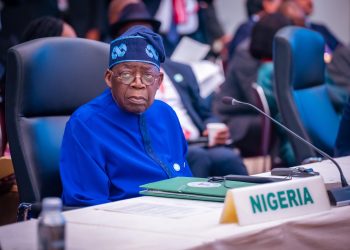
The political scene is constantly overheating from media skirmishes involving the so-called activists, opposition politicians, and those currently in power. The result is a noisy political ecosystem driven more by clout and ego than by vision or national progress.
The current generation of activists launch wild, often unfounded allegations against individuals and institutions. They weaponize hashtags and online mobs, not necessarily for justice, but for relevance. They instigate anti-government protests over petty or exaggerated issues, playing to the gallery to justify the foreign grants and sponsorships they depend on. They must continually demonstrate that they are “working,” even if that means fabricating crises or fueling public resentment.
In contrast, icons like Gani Fawehinmi, Beko Ransome-Kuti, and Tai Solarin were genuine advocates who spoke truth to power regardless of consequence. They risked imprisonment, persecution, and even their lives, not for self-promotion, but to advance the cause of justice and accountability. Their activism was anchored on principle, not personal gain. That is why they are still revered today. They stood on the streets, not for trending hashtags, but for tangible reforms on education, rule of law, democracy, and human rights.
Today’s so-called activists, on the other hand, often covet political appointments, contracts, or media relevance. They exploit public frustration as a bargaining chip. The line between advocacy and blackmail has become blurred. Subtle coercion and arm-twisting have replaced moral conviction. Many of them function more like political entrepreneurs, negotiating influence in exchange for silence or endorsements. They have become a new class of opportunists thriving on chaos.
Likewise, opposition politicians in the past provided sound, ideological alternatives. They acted as checks on those in power through intelligent debate, evidence-based criticism, and policy counter-proposals. Opposition politics then was not merely about seizing power, it was about holding power accountable. Leaders like Obafemi Awolowo and Aminu Kano differed from the ruling class in ideology and discipline, not just in party color. Their parties drafted development-oriented manifestos, focused on industrialization, education, and social welfare.
But the story is different today. Opposition politics has degenerated into personal vendetta and bitterness. Many politicians who lose elections simply rebrand as opposition leaders, not to offer better governance ideas, but to attack incumbents relentlessly. Criticism has become their only currency. The goal is not reform but revenge.
This decay has poisoned our national discourse. Rather than engaging in policy debates, we now drown in endless arguments about tribe, religion, and region. Political discussions have been reduced to who gets what, not what works best. The public space, especially on social media is dominated by hate campaigns, character assassination, and conspiracy theories.
Nigeria seems permanently in crisis mode. Every week brings a new outrage, a new trending scandal, a new round of insults between rival camps. Meanwhile, the real issues are sidelined. The people, whom both activists and politicians claim to represent, remain trapped in poverty and disillusionment.
The media has also become complicit. Instead of acting as a watchdog, it has turned into an echo chamber for sensationalism. Outrage sells, and calm analysis doesn’t. Newsrooms amplify baseless claims, while genuine developmental stories get buried. Activists and politicians feed off this toxic cycle with one shouting louder to remain relevant, the other responding to maintain dominance.
What Nigeria needs now is not noise, but nation builders. People who can rise above partisanship and self-interest. We need a new class of intellectual activists who can combine moral courage with strategic thinking, who understand both governance and accountability, who criticize to reform, not to destabilize.
Constructive opposition should not mean blind antagonism. It should mean designing better alternatives, preparing shadow cabinets, monitoring implementation, and presenting data-driven solutions. True activism should not be a hustle; it should be a disciplined commitment to justice, transparency, and sustainable progress.
Until that happens, our democracy will remain fragile. We will continue recycling noise without progress, passion without purpose, activism without integrity, and opposition without vision. The nation deserves better. The people deserve voices that uplift, not incite; leaders that build, not exploit.
Real change does not come from trending hashtags or televised outrage. It comes from deliberate, consistent work, quiet reforms, honest leadership, and citizens who refuse to be manipulated by theatrics. Only then will Nigeria move from endless agitation to actual transformation.
*Ayodeji is an author, speaker, counsellor. He can be reached on 09059243004 (sms only).



























